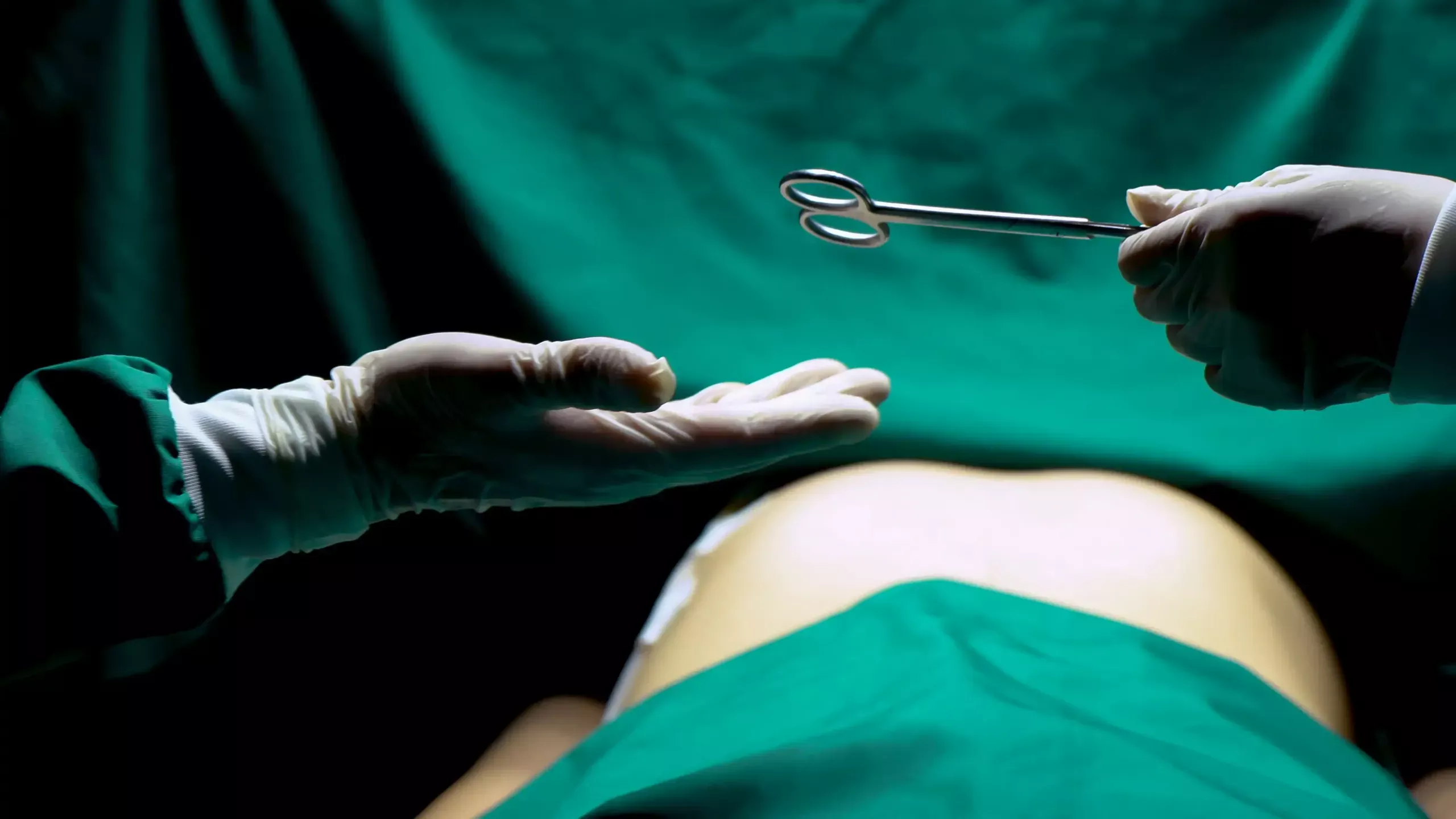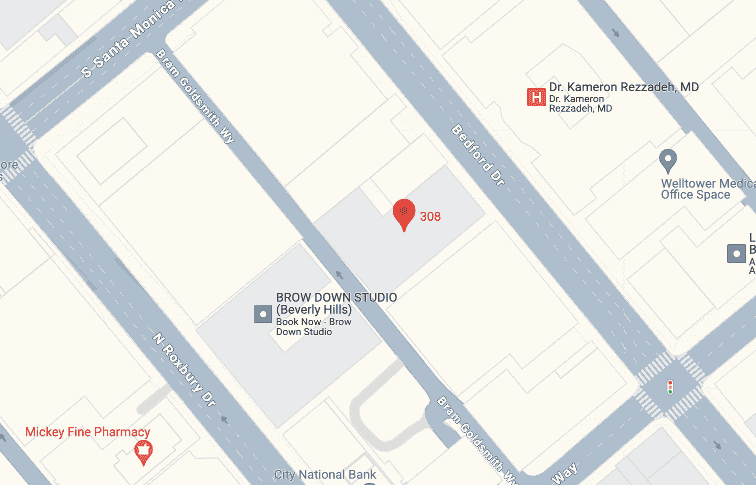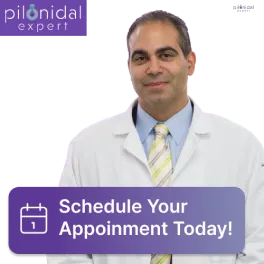Pilonidal cysts are small, painful sacs filled with pus and debris that often occur near the tailbone or the cleft of the buttocks. If left untreated, these cysts can lead to recurrent infections and abscesses. Seeking appropriate medical care is crucial for effective treatment and prevention of complications. In this article, we will explore the specialists who treat pilonidal cyst, the doctors involved in their management, and where you can get a pilonidal cyst removed

What doctor treats pilonidal cysts?
Primary Care Physicians:
If you suspect you have a pilonidal cyst, your first point of contact should be your primary care physician (PCP) or general practitioner (GP). These doctors are trained to diagnose and manage a wide range of medical conditions. Your PCP will evaluate your symptoms, perform a physical examination, and may order diagnostic tests such as an ultrasound or MRI to confirm the presence of a pilonidal cyst.
Dermatologists:
Dermatologists specialize in the diagnosis and treatment of conditions related to the skin, hair, and nails. While pilonidal cysts are not typically a dermatological condition, dermatologists may be involved in the initial evaluation if there is uncertainty about the diagnosis or if the cyst is causing skin-related complications. They can provide guidance and recommend appropriate treatment options or refer you to a surgeon if necessary.
General Surgeons:
General surgeons are trained in the surgical management of a wide range of conditions, including pilonidal cysts. They have the expertise to perform surgical procedures such as incision and drainage, cyst excision, or wide excision with closure. General surgeons may also recommend non-surgical treatment options depending on the severity and characteristics of the cyst. Consultation with a general surgeon is essential for more complex cases, recurrent cysts, or when the cyst is causing significant pain or recurrent infections.
Colorectal Surgeons:
In some cases, especially when the pilonidal cyst is severe, recurrent, or associated with complex fistulas, a referral to a colorectal surgeon may be necessary. Colorectal surgeons specialize in conditions affecting the colon, rectum, and anus, and they have extensive experience in managing pilonidal cysts and related complications. They can provide advanced surgical options, such as flap procedures or the Bascom technique, which involve removing the cyst while preserving the surrounding healthy tissue.
Proctologists:
Proctologists, also known as colorectal specialists or rectal surgeons, focus specifically on diseases and conditions affecting the rectum and anus. While their expertise lies in treating conditions such as hemorrhoids, fissures, and rectal prolapse, they may also be involved in managing pilonidal cysts that are located near the anal region or associated with fistulas. Proctologists can offer surgical treatment options and comprehensive care for complex cases.
Pilonidal Cyst Surgeons
Pilonidal cyst surgeons are highly skilled and experienced professionals who specialize in the surgical treatment of pilonidal cysts. They possess in-depth knowledge of the anatomy, pathophysiology, and management strategies specific to pilonidal cysts. These surgeons have undergone extensive training and have performed numerous procedures to treat this condition effectively. When conservative or non-surgical treatment options have been exhausted or are not appropriate, pilonidal cyst surgeons are the go-to specialists for surgical intervention.
The role of pilonidal cyst surgeons includes:
Evaluation and Diagnosis: Pilonidal cyst surgeons are experts in evaluating and diagnosing pilonidal cysts. They conduct a thorough examination, review medical history, and may order additional tests such as imaging studies to accurately assess the condition and determine the most appropriate course of action.
Surgical Procedures: Pilonidal cyst surgeons are proficient in performing various surgical techniques to treat pilonidal cysts. Common surgical procedures include incision and drainage, cyst excision, or wide excision with closure. Surgeons may use minimally invasive techniques, such as endoscopic pilonidal sinus treatment, which involve smaller incisions and faster recovery times.
Complex Cases and Recurrences: Pilonidal cyst surgeons specialize in managing complex cases, recurrent cysts, or those associated with fistulas. They have the expertise to address challenging situations where the cysts are large, multiple, or have spread deep into the tissues. In such cases, the surgeon may recommend more advanced surgical approaches, such as flap procedures or the Bascom technique, to ensure complete removal and prevent future recurrences.
Postoperative Care: Pilonidal cyst surgeons provide comprehensive postoperative care to ensure proper wound healing and minimize the risk of complications. They offer guidance on wound care, pain management, and activity restrictions during the recovery period. Regular follow-up appointments are scheduled to monitor the healing process and address any concerns or complications that may arise.
Collaborative Care: Pilonidal cyst surgeons often work collaboratively with other healthcare professionals, such as wound care specialists or infectious disease specialists, to provide multidisciplinary care when necessary. They may also collaborate with colorectal surgeons or proctologists in cases requiring more extensive surgical interventions or complex fistula management.
Also See: Breaking Free: What You Should Know if Considering Pilonidal Cyst Surgery
Finding a Pilonidal Cyst Surgeon:
To find a pilonidal cyst surgeon, consider the following options:
- Referral from Primary Care Physician: Your primary care physician or general practitioner can refer you to a pilonidal cyst surgeon who specializes in the surgical management of this condition.
- Specialist Clinics: Look for specialized clinics or centers that focus on pilonidal cyst treatment. These clinics often have experienced pilonidal cyst surgeons on staff.
- Hospital Departments: Contact the general surgery, colorectal surgery, or proctology departments at hospitals in your area. These departments usually have surgeons who are well-versed in treating pilonidal cysts.
- Online Resources: Utilize online resources, such as healthcare provider directories, to search for pilonidal cyst surgeons in your region. Check for their qualifications, experience, and patient reviews to make an informed decision.
Where can I get a cyst removed?
To have a pilonidal cyst removed, you can seek treatment at various healthcare facilities, including:
a) Hospitals: Most hospitals have general surgery departments or specialized surgical centers where pilonidal cysts can be surgically managed. Larger hospitals may also have colorectal or proctology departments.
b) Surgical Clinics: Independent surgical clinics or outpatient centers often offer a range of surgical procedures, including the removal of pilonidal cysts. These clinics may provide a more streamlined and focused experience for patients seeking specific surgical interventions.
c) Specialty Clinics: Some clinics specialize in the management of pilonidal cysts and related conditions. These clinics are typically staffed by surgeons with extensive experience in treating pilonidal cysts, offering specialized care and expertise in this particular field.
Contact the Experts!
When it comes to treating pilonidal cysts, trust the expertise of Pilonidal Experts. Our team of specialists is dedicated to providing exceptional care tailored to your needs. With our specialized knowledge, surgical proficiency, and comprehensive approach, we ensure the best possible outcomes for our patients. If you are still wondering, “who treats pilonidal cyst?” then contact our team today. Don’t let pilonidal cysts hold you back. Contact us today!








